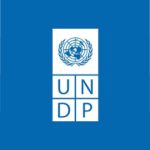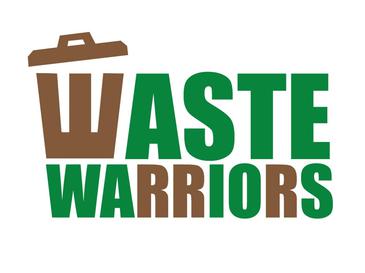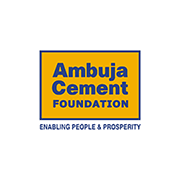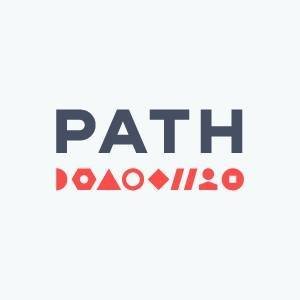
Website UNDP
Background
UNDP is committed to achieving workforce diversity in terms of gender, nationality and culture. Individuals from minority groups, indigenous groups and persons with disabilities are equally encouraged to apply. All applications will be treated with the strictest confidence.
UNDP does not tolerate sexual exploitation and abuse, any kind of harassment, including sexual harassment, and discrimination. All selected candidates will, therefore, undergo rigorous reference and background checks.
UNDP has been working in India since 1951 in almost all areas of human development. Together with the Government of India and development partners, we have worked towards eradicating poverty, reducing inequalities, strengthening local governance, enhancing community resilience, protecting the environment, supporting policy initiatives and institutional reforms, and accelerating sustainable development for all.
With projects and programmes in every state and union territory in India, UNDP works with national and subnational government, and diverse development actors to deliver people-centric results, particularly for the most vulnerable and marginalized communities. As the integrator for collective action on the Sustainable Development Goals (SDGs) within the UN system, we are committed to supporting the Government of India’s national development vision and priorities and accelerating the achievement of the SDGs for the people and the planet.
UNDP India’s current Country Programme, 2018-2022, is in its final year of implementation. Our new Country Programme (2023-2027), which comes into effect in 2023, builds on our prior work and aims to provide an integrated approach to development solutions in three strategic portfolios:
- Strong, accountable and evidence-led institutions for accelerated achievement of the SDGs
- Enhanced economic opportunities and social protection to reduce inequality, with a focus on the marginalized
- Climate-smart solutions, sustainable ecosystems and resilient development for reduced vulnerability
- South-South cooperation, gender equality and social inclusion are promoted across the pillars. The programme is supported by a framework of renewed partnerships and blended finance solutions, strategic innovation and accelerator labs, and data and digital architecture.
You are invited to join a team of future-smart development professionals to support India in achieving the national and globally agreed goals. As part of the UNDP team, your focus will be to work with diverse stakeholders to find country-specific solutions that lead to sustainable development and reach those furthest behind first.
The Ministry of Environment, Forest, and Climate Change (MoEF&CC), Government of India, through its National Ozone Unit, the Ozone Cell, is responsible for the timely and effective implementation of Montreal Protocol in the Country. UNDP has been appointed as the lead implementing agency by the MoEF&CC for phase out of HCFCs in the consumption sector in India. The Chemical and Environment Management (CEM) Unit in the UNDP Country office handles the Montreal Protocol portfolio.
Duties and Responsibilities
The National Programme Manager will be responsible for meeting the HCFC reduction targets as per the Montreal Protocol schedule, including those specified in the agreement between the Government of India and the Executive Committee of the Multilateral Fund, oversee day-to-day project management and regular monitoring of project results and risks, including social and environmental risks at country level.
The incumbent will ensure engagement of all direct concerned stakeholders and delivery of project outcomes, in close coordination with the Ozone Cell, the National Ozone Unit set up by the Ministry of Environment, Forest and Climate Change (MoEF&CC) for implementation of the Montreal Protocol Activities.
The National Programme Manager will ensure that the project implementation is through following standard Multilateral Fund (MLF) and UNDP M&E. This includes, but is not limited to, ensuring the results framework indicators are monitored annually in time for evidence-based reporting in the Annual Project Report, and that the monitoring of risks and the various plans/strategies developed to support project implementation (e.g. Environmental and social management plan, gender action plan etc) occur on a regular basis.
- Planning and implementation of Montreal Protocol Projects for UNDP as the lead implementing agency.
- Advisory services including technical backstopping to Ozone Cell, MoEF&CC in framing policy and implementation framework for implementation of the Montreal Protocol Projects
- Designing and prioritizing technical, policy and other interventions that would facilitate achievement of the Montreal Protocol compliance targets, including for HCFC phase-out, in accordance with the agreement(s) between Government of India and Executive Committee of the Multilateral Fund;
- Promoting partnerships and collaborations with concerned line ministries/departments, academic and research institutions associated with implantation of Montreal Protocol.
- Provide strategic inputs to the Indian delegation participating in the Montreal Protocol meetings on key policy and technical issues relating to implementation of Montreal Protocol including supporting Indian delegation in the negotiations during the Montreal Protocol meetings
- Preparation of annual implementation programmes and work plans, periodic reports to be submitted to various agencies, verification of annual phase-out targets and any documentation for obtaining release of funding tranches from the Executive Committee of the Multilateral Fund.
- Establish multi-stakeholder coordination structures – comprising of representatives from relevant central ministries, state ministries and departments, Montreal Protocol Unit, National Ozone Units of countries, Industry associations, industries, NGOs and academic/research institutions – to promote dialogue and coordination for ODS phase-out programs and Montreal Protocol implementation in country
- Plan activities of the project and monitor progress against the project results framework and the approved annual workplan.
- Mobilize personnel, goods and services, training and micro-capital grants to initiative activities, including drafting terms of reference and work specifications, and overseeing all contractors’ work.
- Manage and monitor the project risks initially identified and submit new risks to the PSC for consideration and decision on possible actions if required; update the status of these risks by maintaining the project risks log
Competencies
Core competencies (Level 3):
- Achieve Results: Set and align challenging, achievable objectives for multiple projects, have lasting impact
- Think Innovatively: Proactively mitigate potential risks, develop new ideas to solve complex problems
- Learn Continuously: Create and act on opportunities to expand horizons, diversify experiences
- Adapt with Agility: Proactively initiate and champion change, manage multiple competing demands
- Act with Determination: Think beyond immediate task/barriers and take action to achieve greater results
- Engage and Partner: Political savvy, navigate complex landscape, champion inter-agency collaboration
- Enable Diversity and Inclusion: Appreciate benefits of diverse workforce and champion inclusivity
People Management competencies:
UNDP People Management Competencies can be found in the dedicated site.
Cross-Functional & Technical competencies:
Business Direction and Strategy
- Strategic Thinking: Ability to develop effective strategies and prioritized plans in line with UNDP’s objectives, based on the systemic analysis of challenges, potential risks and opportunities; linking the vision to reality on the ground, and creating tangible solutions
- UNDP Representation: Ability to represent UNDP and productively share UNDP knowledge and activities; advocate for UNDP, its values, mission and work with various constituencies
Business Management
- Project Management: Ability to plan, organize, prioritize and control resources, procedures and protocols to achieve specific goals
- Risk Management: Ability to identify and organize action around mitigating and proactively managing risks
Digital & Innovation
- Data analysis: Ability to extract, analyse and visualize data (including Real- Time Data) to form meaningful insights and aid effective decision making
2030 Agenda: Planet
- Nature, Climate and Energy: Chemicals and Waste: Ozone and climate-friendly technologies;
- Chemicals and Waste management: practical application
Required Skills and Experience
Education:
- Master’s degree in science, engineering, management or environment or related field, or Bachelor’s degree in any of the above fields with 2 additional years of work experience.
Experience:
- Minimum nine (9) years of work experience post Bachelors in relevant area with progressing leadership/ responsibility will be given due consideration; or
- Minimum seven (7) years of work experience post Masters in relevant area with progressing leadership/ responsibility will be given due consideration
- Demonstrated experience and knowledge and understanding of the Montreal Protocol including alternatives to Ozone Depleting Substances and other controlled substances under the Montreal Protocol, relevant policies, and regulations
- Anticipate and perceive the impact and implications of decisions and activities towards the overall objective of achieving the Montreal Protocol compliance targets
- Demonstrated experience in design, implementation, analysis, and monitoring of donor-based programmes in climate change and environment areas.
- Ability to prepare substantive reports, briefs, agreements, etc., in a clear and concise manner in English.
- Demonstrated experience in development and implementation of sustainable strategies relating to HCFC phase out
- Good documentation skills on and experience of preparing substantive reports, briefs, agreements, etc. including policy related issues during negotiations in the Montreal Protocol meetings
- Demonstrated experience of working with Central and/or State Governments/UN and international agencies/ Research Institutions/ Industrial Associations on similar assignments
- Demonstrated experience with UN system or national institutions implementing Montreal Protocol programmes
- High level of understanding of Montreal Protocol Policy, procedures and guidelines relating to approval and implementation of projects
- Additional qualification in finance, administration and/or law will be an advantage.
Required Languages:
- Fluency in English and Hindi is mandatory
- Note: this position is open to India nationals only.
To apply for this job please visit estm.fa.em2.oraclecloud.com.





